Flemmings Ngwira is an academic whose career brings together scholarship, administration, and a deep interest in the dynamics of language and communication. As Head of the Language and Communication Studies Department, he plays a strategic leadership role in shaping academic direction, ensuring quality delivery, and fostering a productive environment for both students and staff. With a strong background in linguistics and humanities, he approaches communication as both a science and an art—an understanding that strengthens his teaching, research, and administrative responsibilities.
He leads departmental efforts in curriculum enhancement, programme review, and pedagogical innovation, ensuring that offerings remain responsive to global shifts in language studies, communication technologies, and professional expectations. Flemmings values collaborative leadership and emphasizes shared ownership of academic goals, empowering colleagues to contribute meaningfully to the department’s growth.
His scholarly interests intersect with real-world communication challenges, and he continues to promote research that advances knowledge in linguistics and applied communication. Dedicated to creating a department known for excellence in teaching, intellectual engagement, and societal contribution, he strives to strengthen the department’s footprint within the university and beyond. Flemmings also enjoys research and music production—creative passions that complement his intellectual curiosity and broaden his academic vision.
General Activities
The Language and Communication Department plays a central role in advancing professional communication training, research, and community engagement within the institution. The department hosts three undergraduate degree programmes: Bachelor of Arts in Business Communication, Bachelor of Arts in Social and Behaviour Change Communication, and Bachelor of Arts in Public Relations. These programmes equip students with competencies in business and corporate communication, development communication, social and behaviour change communication (SBCC), and public relations practice. In addition, the department offers two master’s degree programmes: Master of Arts in Health and Behaviour Change Communication and Master of Arts in Public Relations, both designed to deepen students’ analytical, research, and professional communication skills at an advanced level.
Beyond its degree programmes, the department provides essential language and communication skills training to students across 5 schools. This includes courses in English for academic purposes, business communication, as well as organisational and managerial communication. These service courses strengthen students’ academic writing, professional communication, critical thinking, and presentation skills, which are core competencies required in all fields of study.
Staff members undertake research and consultancies that inform policy, strengthen development communication interventions, and support institutional and national development agendas through communication strategy development, media and communication training, social and behaviour change interventions, organisational communication, public relations advisory services, and communication capacity-building for government and non-governmental organisations.
Focus areas
The department is involved in research and consultancies, with four main focus areas:
- Social and Behaviour Change Communication
- Communication for Development
- Language and Communication
- Corporate and Strategic Communication
Unique contributions
The department is distinguished by its combination of academic excellence, applied
research, and policy impact. Key contributions include:
- Pioneering SBCC as an academic discipline in Malawi through both undergraduate and postgraduate programmes.
- Providing communication research and expertise that inform community development projects, public health campaigns, and policy communication.
- Supporting institutional visibility through staff involvement in public relations, media engagement, and communication advisory roles.
- Strengthening academic literacy across the institution through high-quality EAP and communication skills training.
- Contributing to national and regional development through consultancies, capacity-building initiatives, and collaborative research with other partners
